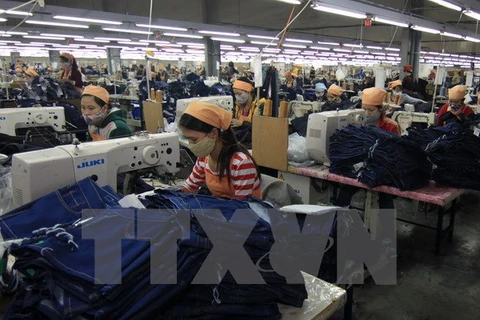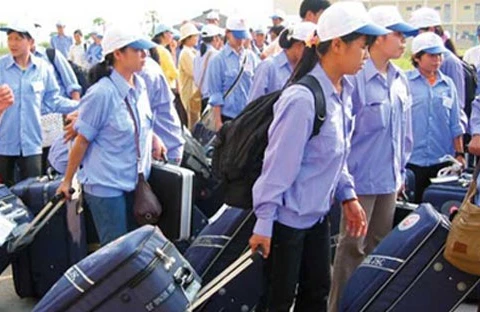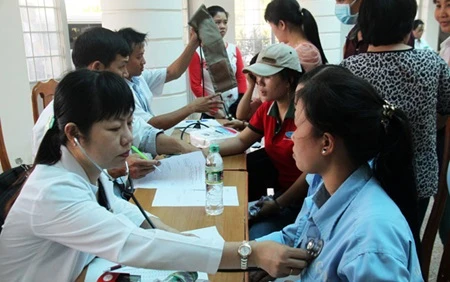A pilot labour inspection campaign in the apparel industry uncovered 1,786 violations at 152 businesses in 12 cities and provinces across the country, according to the Ministry of Labour, Invalids and Social Affairs (MoLISA).
The inspections were conducted from May to September this year by MoLISA inspectors in co-ordination with the International Labour Organisation (ILO), the Vietnam General Confederation of Labour, and the Vietnam Chamber of Commerce and Industry.
MoLISA Deputy Minister Huynh Van Ty said the apparel industry was chosen for the test inspections because it had been a key foreign currency earner for Vietnam in recent years, bringing in 13.6 percent of the country’s export revenue and 10.5 percent of total gross domestic product. The sector posted an annual growth rate of 14.5 percent between 2008 and 2013.
About 6,000 apparel enterprises operate in Vietnam. They employ more than 2.5 million workers, accounting for about 25 percent of the industrial workforce. Most employees were manual labourers with limited professional skills, Ty said.
The most common violation was overtime hours exceeding the stipulated excess time, MoLISA Deputy Chief Inspector Nguyen Tien Tung said, adding that 60 companies committed the violation.
Seventeen firms did not provide sufficient overtime or night shift pay, while salaries in 11 businesses were lower than the region-based minimum wage levels set by the State.
He said that a number of enterprises did not have safety and instructional signs, and didn’t disseminate information on how to escape in an emergency. They also didn’t post the regulations and escape route maps in visible areas.
A shortage of personal protective gear was also common, and numerous labourers did not use the equipment correctly. About 90 businesses did not have sufficient occupational safety training.
MoLISA will propose similar inspections to be conducted in the construction industry next year, which has seen numerous work accidents in 2015.-VNA























